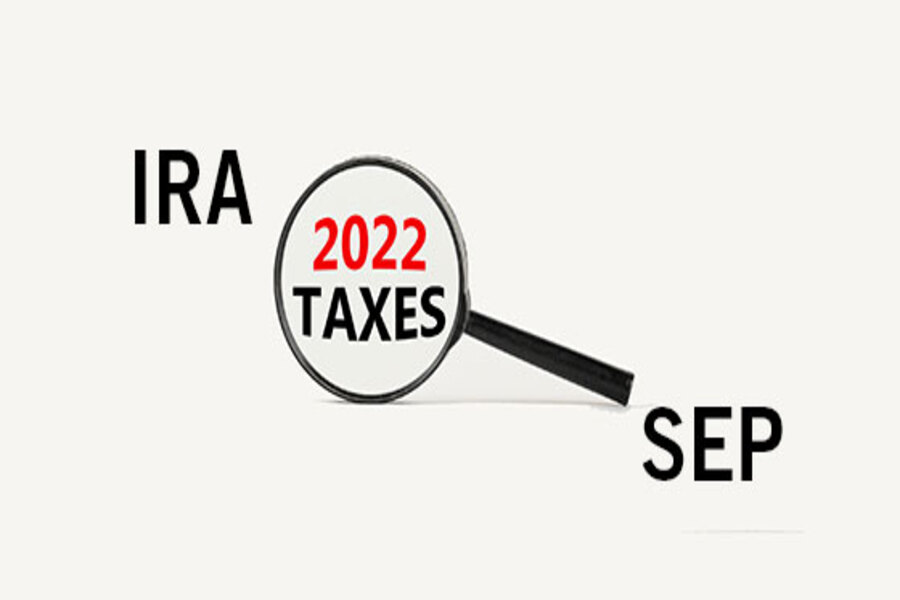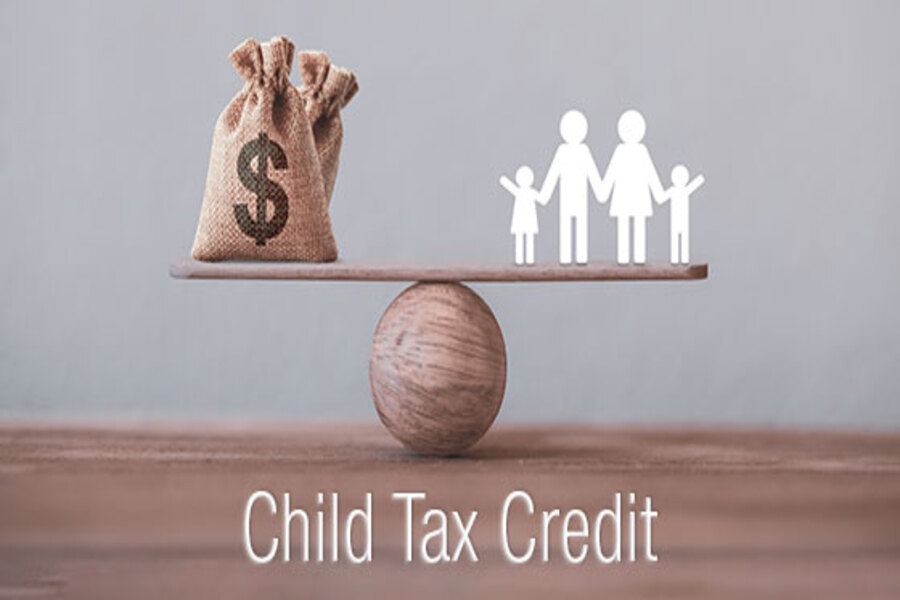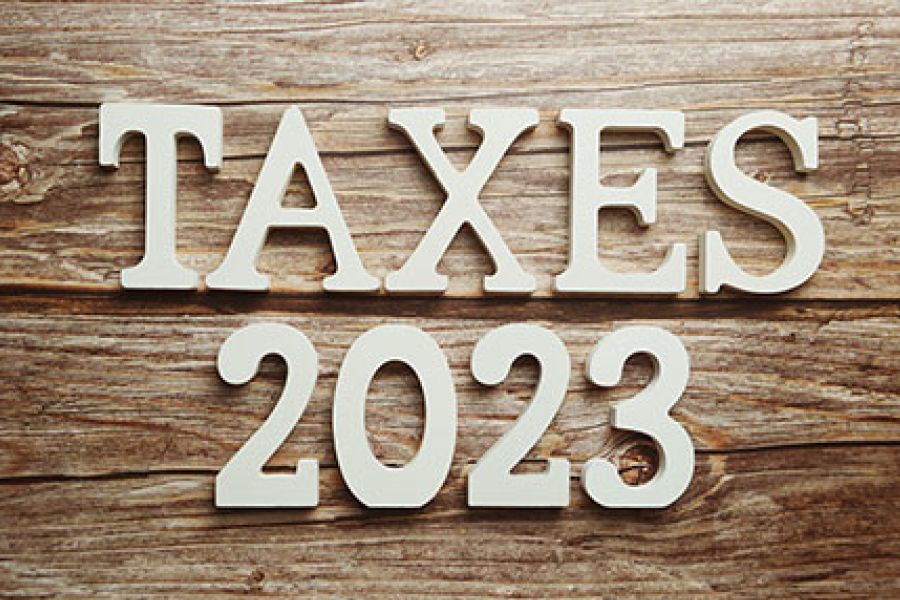If you’re getting ready to file your 2022 tax return, and your tax bill is higher than you’d like, there may still be an opportunity to lower it. If you’re eligible, you can make a deductible contribution to a traditional IRA right up until this year’s April 18 filing deadline and benefit from the tax savings on your 2022 return. Rules for eligibility You can make a deductible contribution to a traditional IRA if: You (and your spouse) aren’t an active participant in an employer-sponsored retirement plan, or You (or your spouse) are an active participant in an employer plan, but your modified adjusted gross income (MAGI) doesn’t exceed certain levels that vary from year-to-year by filing status. For 2022, if you’re a married joint tax return filer...

As reported in IR-2023-33 on 2/24/2023 Disaster-area taxpayers in most of California now have until October 16, 2023, to file various federal individual and business tax returns and make tax payments, the Internal Revenue Service announced last Friday. Previously, the deadline had been postponed to May 15, 2023 for these areas. The IRS is offering relief to any area designated by the Federal Emergency Management Agency (FEMA) in on the page entitled California Severe Winter Storms, Flooding, Landslides, and Mudslides. There are four different eligible FEMA declarations, and the start dates and other details vary for each of these disasters. The current list of eligible localities and other details for each disaster are always available on the Tax Relief in Disaster Situations page on IRS.gov. The additional relief postpones...
If you’re a parent, you may be confused about the rules for claiming the Child Tax Credit (CTC). The rules and credit amounts have changed significantly over the last six years. This tax break became more generous in 2018 than it was under prior law — and it became even better in 2021 for eligible parents. Even though the enhancements that were available for 2021 have expired, the CTC is still valuable for parents. Here are the current rules. For tax years 2022 and 2023, the CTC applies to taxpayers with children under the age of 17 (who meet CTC requirements to be ‘’qualifying children’’). A $500 credit for other dependents is available for dependents other than qualifying children. CTC amount The CTC is currently $2,000 for each...
Many people are more concerned about their 2022 tax bills right now than they are about their 2023 tax situations. That’s understandable because your 2022 individual tax return is due to be filed in 10 weeks (unless you file an extension). However, it’s a good time to familiarize yourself with tax amounts that may have changed for 2023. Due to inflation, many amounts have been raised more than in past years. Below are some Q&As about tax limits for this year. Note: Not all tax figures are adjusted annually for inflation and some amounts only change when new laws are enacted. I didn’t qualify to itemize deductions on my last tax return. Will I qualify for 2023? In 2017, a law was enacted that eliminated the tax benefit of...
Most retirement plan distributions are subject to income tax and may be subject to an additional penalty if you take an early withdrawal. What’s considered early? In general, it’s when participants take money out of a traditional IRA or other qualified retirement plan before age 59½. Such distributions are generally taxable and may be subject to a 10% penalty tax. Note: The additional penalty tax is 25% if you take a distribution from a SIMPLE IRA in the first two years you participate in the SIMPLE IRA plan. Fortunately, there are several ways that the penalty tax (but not the regular income tax) can be avoided. However, the rules are complex. As the taxpayer in one new court case found, if you don’t meet the requirements, you’ll...
The IRS announced it opened the 2023 individual income tax return filing season on January 23. That’s when the agency began accepting and processing 2022 tax year returns. Even if you typically don’t file until much closer to the mid-April deadline (or you file for an extension), consider filing earlier this year. The reason is you can potentially protect yourself from tax identity theft. Here are some answers to questions taxpayers may have about filing. How can your tax identity be stolen? In a typical tax identity theft scam, a thief uses another individual’s personal information to file a fraudulent tax return early in the filing season and claim a bogus refund. The actual taxpayer discovers the fraud when he or she files a return and is told by...
If you have a child or grandchild in college — congratulations! To help pay for the expenses, many parents and grandparents saved for years in tax-favored accounts, such as 529 plans. But there are also a number of tax breaks that you may be able to claim once your child begins attending college or post-secondary school. Tuition tax credits You can take the American Opportunity Tax Credit (AOTC) of up to $2,500 per student for the first four years of college — a 100% credit for the first $2,000 in tuition, fees, and books, and a 25% credit for the second $2,000. You can take a Lifetime Learning Credit (LLC) of up to $2,000 per family for every additional year of college or graduate school — a...
If you’re a parent or grandparent with college-bound children, you may want to save to fund future education costs. Here are several approaches to take maximum advantage of the tax-favored ways to save that may be available to you. Savings bonds Series EE U.S. savings bonds offer two tax-saving opportunities when used to finance college expenses: You don’t have to report the interest on the bonds for federal tax purposes until the bonds are cashed in, and Interest on “qualified” Series EE (and Series I) bonds may be exempt from federal tax if the bond proceeds are used for qualified college expenses. To qualify for the college tax exemption, you must purchase the bonds in your own name (not the child’s) or jointly with your spouse. The proceeds...
On 2/3/2023, the IRS issued Notice 2023-16 guidance that modifies the definitions of certain vehicle classifications for the new, previously owned and qualified commercial clean vehicle tax credits. As a result of this notice, the IRS updated the related frequently asked questions for these credits which can be found on IRS Fact Sheet 2023-4 here: IRS Fact Sheet 2023-04 (This is Blog Post #1340)...
A new law was recently signed that will help Americans save more for retirement, although many of the provisions don’t kick in for a few years. The Setting Every Community Up for Retirement Enhancement 2.0 Act (SECURE 2.0) was signed into law on December 29, 2022. SECURE 2.0 is meant to build on the original SECURE Act of 2019, which made major changes to the required minimum distribution (RMD) rules and other retirement provisions. Here are some of the significant retirement plan changes and when they’ll become effective: The age for beginning RMDs is going up. Employer-sponsored qualified retirement plans, traditional IRAs and individual retirement annuities are subject to RMD rules. They require that benefits start being distributed by the required beginning date. Under the new law,...











